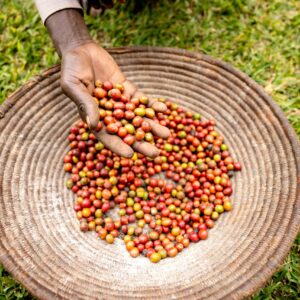The Impact of US Tariffs on Coffee Imports

Credit: Adobe Stock
In the article below, Brett Anderhub, president of Rekerdres & Sons, discusses how the proposed US tariff increases will affect coffee imports and coffee insurance.
Over the last six months, we have seen some tumultuous proclamations in the United States centered around tariffs. Who, and how directly, they impact seem to be a constant tug-of-war between political opponents and the countries in the crosshairs engaged in international trade.
In the best of theoretical cases, the overseas supplier’s product becomes cost inhibitive to continue purchasing and buyers look domestically for morecompetitive alternatives, helping to support the local industry. In practice, especially when there is limited domestic alternative or essential components are now sourced all over the world, the importer, processor, and ultimately the consumer stand to bear the burden of the higher priced goods.
How Does this Impact Imports of Coffee?
Amongst the many questions, apart from the obvious of what amount will be applicable next month as merchants try to lock in future sales, is how this duty can be absorbed by the supply chain. Of the many coffee importers I have spoken with, exactly none have found these recent edicts to be agreeable to their trade. Moreover, trying to negotiate a tariff-reduced purchase price with origin producers might have some traction while prices are at historic highs, but will be more difficult as the price recedes.
As Matthew Brauner from Brauner International (a customs broker tirelessly working with the green coffee trade for years) reminds me, coffee merchants have been enjoying duty-free status for decades. Then, on 5 April 2025, the10 percent base line tariffs went into effect for new oceanshipments for nearly all coffee origins.
This means – for applicable shipments – upon release of a container from the US port terminals, the ten-day clock starts ticking for importers’ of record to pay the new duty. This additional time and expense fall squarely to the importer. Are they able to adjust their sales pricing to pass this cost along?
How Does All This Fit into Coffee Insurance?
Luckily, duty is not a new term to marine insurers. In the ‘old days’, import shipments were regularly declared to marine insurers for premium development according to promulgated rates. If duty was applicable for a commodity, then a small separate premium was assessed to cover the additional expense that could be incurred in the event of a covered claim.
Nowadays, many cargo policies automatically subsume this coverage into the regular basis of valuation – some without any additional reporting requirement and/or premium, others, not. It is important to check your policy to make sure you are aware of any special reporting needs for coverage to be triggered. This additional coverage is usually tucked in as a kind of increased value to the price of the coffee. So, following a covered loss when goods are finally landed and duty is incurred, this additional increased value on the affected goods is included in the final adjustment of the loss.
A nuance worth mentioning: coverage would follow where the duty is actually payable — meaning if goods are totally lost/damaged prior to entry, they are typically free from application of duty and therefore free from corresponding increased claim amounts.
With the standard use of containers for shipping coffee, it is often difficult to ascertain when damage occurred and if it is considered a ‘total loss’. Therefore, in some cases, the importer will have paid the duty and incurred the expense prior to the extent of loss being known. However, they have another ‘duty’ (pardon the pun) to try and abate or obtain a refund of the amounts paid in respect of goods totally lost/damaged. Your customs broker could help you make a post summary correction here.
Finally, it is always advisable to refresh your understanding of your policy to find out if there are any sub limits to make sure that you have coverage in line with your risk appetite to cover the wild tariff swings which, as we have seen, could be implemented at any time.
This is just one more thing to check in the myriad important new processes necessitated by these tariffs. However, a quick review/call now can help ensure your ‘duties’ are well looked after.
Brett Anderhub, CIC, CRM is president of Rekerdres & Sons, a Dallas-based global commodity insurer. Brett has a postgraduate diploma in Marine Insurance and is a member of the Green Coffee Assn’s Logistics Committee and a member of T&CTJ’s editorial advisory board. He can be contacted at [email protected].





